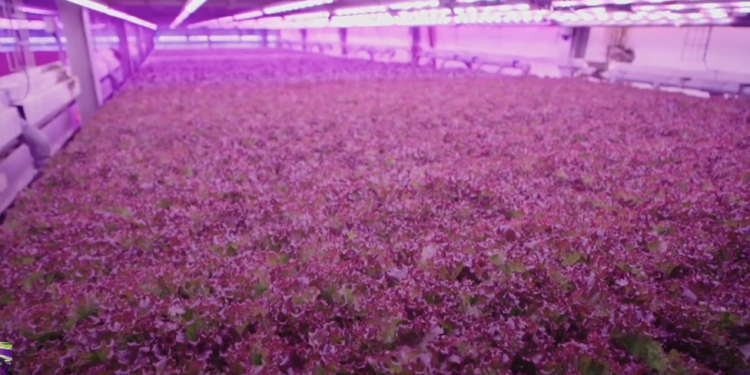#VerticalFarming #SustainableAgriculture #High-TechVegetableFarms #AgriculturalInnovation #EnvironmentalImpact #MarketReadiness #GlobalFoodDemand #Pesticide-FreeCultivation #EconomicFeasibility #NutritionalContent
The traditional methods of agriculture pose numerous challenges, from depleted and acidic soils to the excessive use of pesticides. In response, vertical farms have emerged as a potential solution. These colossal greenhouses cultivate lettuce on multiple stacked levels, presenting a futuristic approach to agriculture. The documentary, “Brauchen wir Vertical Farming?” (Do We Need Vertical Farming?), questions the health implications and market readiness for these high-tech vegetable factories.
As our soils wear out, groundwater sources deplete, and environmental pollution from nitrates and pesticides rises, conventional farming practices reach their limits. Compounded by a projected 25% increase in the world population by 2050, the demand for healthy food is escalating. Vertical farming has been heralded as the answer, yet the question remains: Is the market prepared for these high-tech vegetable factories?
Vertical farms boast several advantages, requiring a staggering 95% less water in their indoor systems, employing pesticide-free cultivation, and achieving a 300-fold increase in vegetable yield per square meter. Despite these benefits, high-tech farms encounter challenges establishing themselves in the market.
Eight years ago, the idea seemed implausible; five years ago, it appeared as a dream. Today, Tisha Livingston, the founder of 80 Acres Farms, the largest vertical farm in the USA, attests to its success and profitability. However, the reality for the Meier brothers, vegetable farmers in Switzerland, is different. They aspire to build a vertical farm but face insurmountable investment and energy costs, making their produce non-competitive in the Swiss market.
Austrian organic farmer Alfred Grand criticizes soilless vegetable cultivation, claiming that factory-produced vegetables lack essential elements that boost our immune system, deeming vertical-farmed vegetables too sterile.
Yasai, Switzerland’s largest vertical farm, aims to be an energy pioneer among its counterparts. The farm envisions vertical farming as an environmentally friendly solution only when all factories globally operate on renewable energy.
Vertical farming holds promise in addressing critical issues in agriculture, but its widespread adoption faces hurdles. From economic feasibility to concerns about nutritional content, the journey towards making high-tech vegetable factories a staple in our food production system is intricate. As the industry evolves, balancing technological innovation with environmental sustainability becomes paramount.











